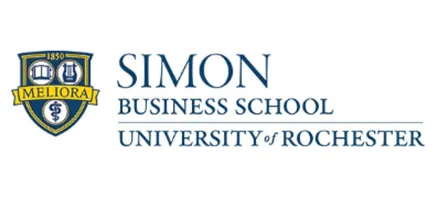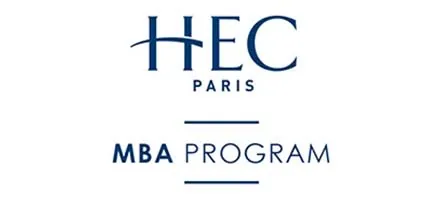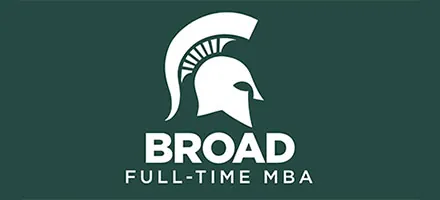
Women have made huge gains in representation in the MBA programs at the top business schools in the U.S. and globally, according to a new report by the nonprofit Forte Foundation
Women’s enrollment in MBA programs stalled in 2020, and coronavirus was the chief culprit. But as a post-pandemic world begins to come into focus, women’s rates of MBA enrollment have roared back to reclaim lost ground — and then some. New Forté Foundation research released today (November 12) reveals that in 2021, women’s MBA enrollment leaped to an all-time high of 41%, achieving a long-term goal of the nonprofit on its 20th anniversary.
Forté, founded in 2001 in response to lagging women’s enrollment in business compared to law and medical school programs, found that more than half of its 56 member schools had upward of 40% women enrolled this year, up from just 42% of member schools last year, and 10 schools had more than 45% — records in both categories. Three Forté schools — the Wharton School at the University of Pennsylvania, George Washington University School of Business, and the Carey Business School at Johns Hopkins University — reached gender parity in 2021, enrolling 50% or more women.
“For years we have had a goal to reach 40% women’s enrollment by 2020, and each percentage point climb is a hard-won victory,” says Elissa Sangster, CEO of the foundation, whose members include the top MBA programs in the U.S., Europe, and Canada. “While we came close last year at 39% overall and didn’t lose ground, we didn’t make as much progress due primarily to the pandemic.”
A Poets&Quants analysis of the MBA programs at the top business schools in the United States confirms Forte’s finding that women made huge gains in 2021: Women’s enrollment grew at 14 of 26 top-ranked U.S. B-schools, and 15 of those schools — including all but one of the top 10 — now have 40% or more women in their MBA student ranks.
2021: A BREAKTHROUGH YEAR FOR WOMEN IN BUSINESS SCHOOL

Forté Foundation CEO Elissa Sangster. File photo
The Forté Foundation was formed two decades ago in response to research showing that U.S. law and medical programs had achieved gender equity, yet fewer than 28% of MBA students were women. Progress since then — aided in no small part by a Forté Fellows scholarship program that has facilitated more than $300 million in scholarships — has been slow but steady: By November 2020, the global foundation reported that 22 of its member schools with full-time MBA programs had cohorts of at least 40% women, up from 19 schools in 2019, 12 schools in 2015, and just one school in 2010.
Despite the pandemic, 2020 was something of a watershed year, with a record eight Forté schools enrolling 45% women in their cohorts, including George Washington, Oxford University Saïd Business School, Washington University in St. Louis Olin Business School, the University of Maryland Smith School of Business, the University of Virginia Darden School of Business, and Arizona State University Carey School of Business. Dartmouth College’s Tuck School of Business led Forté’s pack with 49% women in the class of 2022.
But the biggest advances were yet to come. In 2021, women’s enrollment in full-time MBA programs at Forté member schools increased to a record 41% overall, including 42% in U.S. schools (up from 39% in 2020) and 38% in schools outside the U.S. (36% in 2020).
“Women have been disproportionately impacted in terms of job loss and stepping out of the workforce in the wake of Covid-19,” Elissa Sangster says. “It’s heartening to see on the 20th anniversary of Forté’s formation that more women enrolled in MBA programs this year. This will help rebuild a diverse pipeline of future leaders.”
The news is not all positive. As Sangster points out, currently only 6% of CEOs at S&P 500 companies are women, and about 40% have an MBA or its equivalent, according to Forté research. Meanwhile, major hurdles in pay and other areas still exist, as Forte reported in a September 2021 study.
“We aim to achieve gender equity in MBA programs in the next decade,” Sangster says. “Myriad research demonstrates diversity improves risk management, innovation and financial performance and enhancing enrollment of women and minorities in MBA programs, and in leadership at companies, is critical given the backslide in progress in the pandemic.”
AVERAGE PERCENTAGE OF WOMEN IN U.S. TOP 10: 44.6%
At the top U.S. B-schools in 2021, progress is clear in the data, as a Poets&Quants analysis reveals. Among the 26 B-schools ranked highest by P&Q, 15 reported 40% or more women in their fall 2021 cohorts, up from 13 schools both last year and in 2019. Fourteen schools saw gains averaging 4.6 percentage points, led by Wharton’s leap from 41% in 2020 to 52% this year, but including Northwestern Kellogg School of Management’s 9-point gain to 49% and MIT Sloan School of Management’s 6-point increase to 44%.
In the top 10, only one school — UC-Berkeley Haas School of Business, at 39% — is below 40% women this fall. Top-10 schools average 44.6% women, up from 41.5% in 2020 and 42% in 2019; the average gain this fall at seven schools in the top 10 was 5.3%. The only B-schools to lose ground year-over-year in the top 10 were Stanford Graduate School of Business, which declined to 44% from 47%, and Dartmouth College Tuck School of Business, which stood on the edge of parity last year at 49% but slipped to 46% this year.
Gains for women are even more impressive over the last five years: Up and down the ranking, 17 schools enrolled more women, led by Duke Fuqua School of Business, which grew its share of MBA women by 14 points to 48%; and Cornell Johnson Graduate School of Management, which gained 12 points to 39%.
Not everyone is headed in the right direction. Nine schools dropped their share of women this year, including USC Marshall School of Business, Indiana Kelley School of Business, and Carnegie Mellon Tepper School of Business, each of which lost 4 points from 2020. The Tepper School is on a particularly rough slide, having declined to just 21% of this fall’s cohort, lowest among 26 schools and 6 points lower than the Pittsburgh, Pennsylvania school enrolled in 2017.
Europe, which historically has lagged the U.S. in women's MBA representation, had a mixed fall judging by the new classes at some of the top schools. Cambridge Judge Business School, which has a one-year MBA program, earns the spotlight by gaining 6 points from last year, to 43%; but INSEAD in France and IE and IESE in Spain all lost ground and remain mired in the 30s. Rotman School of Management in Toronto, Canada continues to outpace non-U.S. schools with 45% women this fall; Oxford Said is steady at 40%.
See the next page for a table with new and historical data for women enrolled in the MBA programs at the top 25 U.S. business schools.









